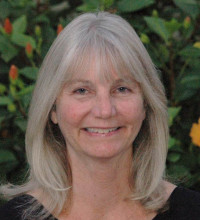Toxic, harmful algal blooms are a natural, recurring threat to seafood safety and consumer health. Although California’s Department of Public Health (DPH) has an ongoing monitoring program to test water and seafood species for these natural toxins, little information was available for offshore sites popular with fishermen and SCUBA divers. California Sea Grant scientist Carolynn Culver worked with DPH and the Department of Fish and Wildlife to engage southern California stakeholders who used the sites in a volunteer monitoring program.
The volunteers came from diverse coastal communities – commercial fishermen and seafood distributors, university researchers, marine educators, offshore oil and gas companies, and sportfishing and dive operators. The data they gathered successfully improved information on the areas impacted by harmful algae blooms, allowing DPH to lift a seafood advisory, providing more safe areas for fishing. Culver and her collaborators were able to expand the citizen science program, as well as develop multi-lingual seafood safety materials for consumers, that can be adopted by DPH in the future to fill critical information gaps.
Attachments
 CulverEtAl_CFRWBiotoxin_FinalReport.pdf
CulverEtAl_CFRWBiotoxin_FinalReport.pdf Carolynn Culver
Carolynn Culver